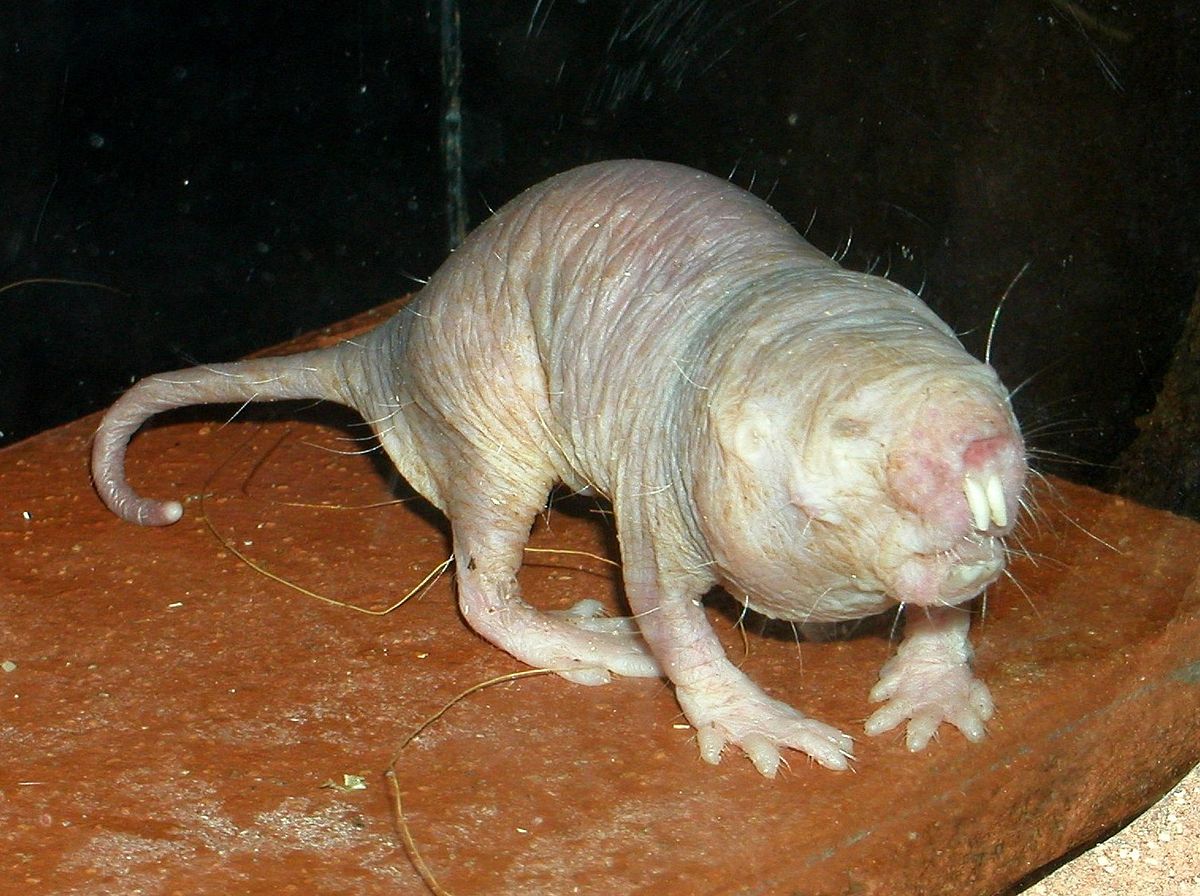Ever since humans and their immediate ancestors appeared, we’ve been changing our world. Genus Homo arose perhaps 1.8 – 2.5 million years ago, depending on which paleontologist you believe. Nothing like us has existed before. Ever. We arose from omnivorous apelike creatures. We became the most fearsome predator the planet has ever known. Tyrannosaurus has nothing on Homo.
Our lineage has very unusual adaptations. We stand upright; bipedalism. We can run, not fast, but far, far, far. I’ve corresponded with Daniel Lieberman, one of the anthropologists who studied that ability. He and Dennis Bramble document the morphological features in Homo erectus that support bipedal running. Homo sapiens (us) has those, too. We have way less hair than pretty much anything except a naked mole rat (see below), and sweat glands all over our body.
No other animal can dump heat like a human. I had a professor who studied this by shaving chimpanzees and airmen at Holloman Air Force Base in Alamogordo, New Mexico. He shaved the chimps, and maybe the airmen, dusted them with a powder that changed color when wet, then put them in a temperature chamber and cranked it up. The chimps couldn’t sweat so well and over heated. No other mammal can tolerate heat like a human and keep moving. We can also throw harder than any other primate. And we’re mental. We can engage in complex mental modeling and communications that surpasses any other creature we know about, although dolphins, elephants, and parrots aren’t slouches. Also, when we eat high fat diets, we switch to a metabolic state that uses ketone bodies derived from the fat instead of glucose derived from sugars. What’s with all these strange traits?
The answer is that we’re “persistence hunters.” Over on my Nutrition Equaution website, I explain more of that. We chased big prey animals until they collapsed from exhaustion, heat or otherwise, then we threw sharp sticks until they bled to death. Then we ate them. That makes us predators. Darn good ones. When genus Homo appeared, a number of big carnivore species went extinct, even though all of them were bigger and, individually, more dangerous than Homo erectus. But Homo erectus hunters hung together, chased the poor food relentlessly when it was too hot for the food or the big predators to be out and active, and out-competed the big boys. Paleontologist Lars Werdelin and his collaborators documented this effect, the first big effect we had on our world.
So the ecological balance of the world changed when our genus appeared. Our species, Homo sapiens, appeared perhaps 200,000 years ago. It looks like we coexisted with Homo erectus, Homo neanderthalensis, and maybe some other cousins depending on how the paleontologists classify the fossils. About 50,000 years ago many big species of herbivore started to disappear in the Old World (Asia, Europe, Africa). When modern humans found their way to the New World (North and South America) within the past 20,000 years, a number of large herbivores, and some big predators, went extinct as well. There’s some debate about why, but many researchers think it was human-caused.
Neandertals and Homo erectus went extinct, too. It’s likely they were more obligate carnivores/predators. Homo sapiens adapted by learning to scratch the ground–agriculture.




